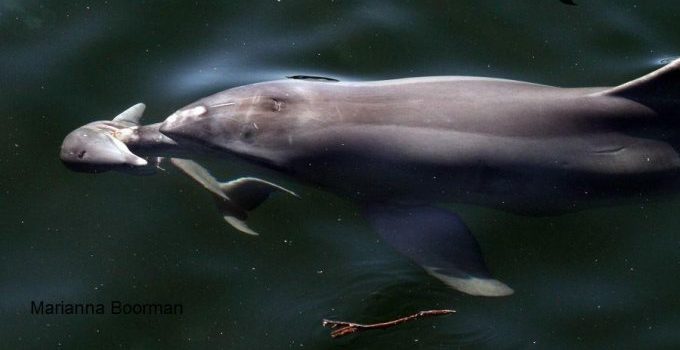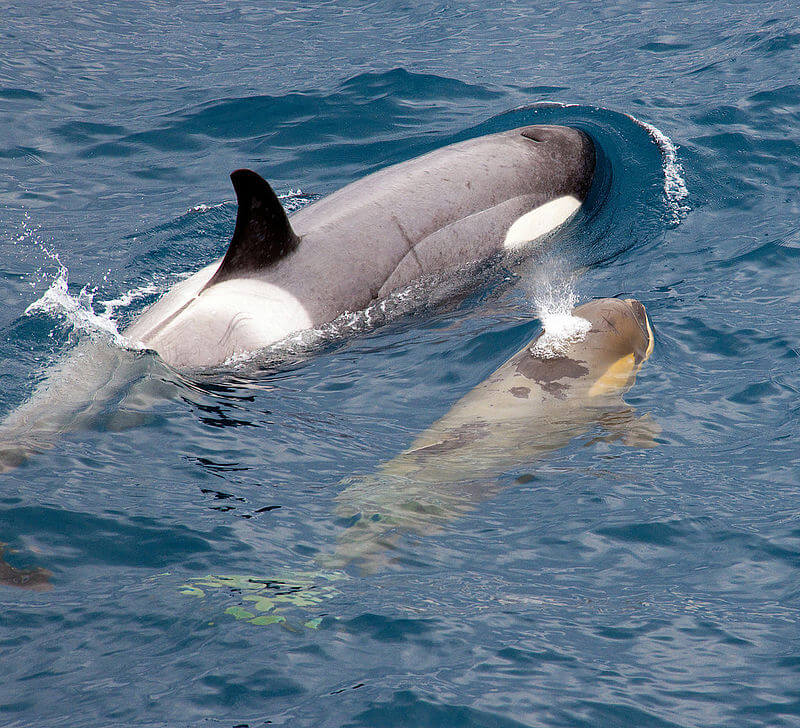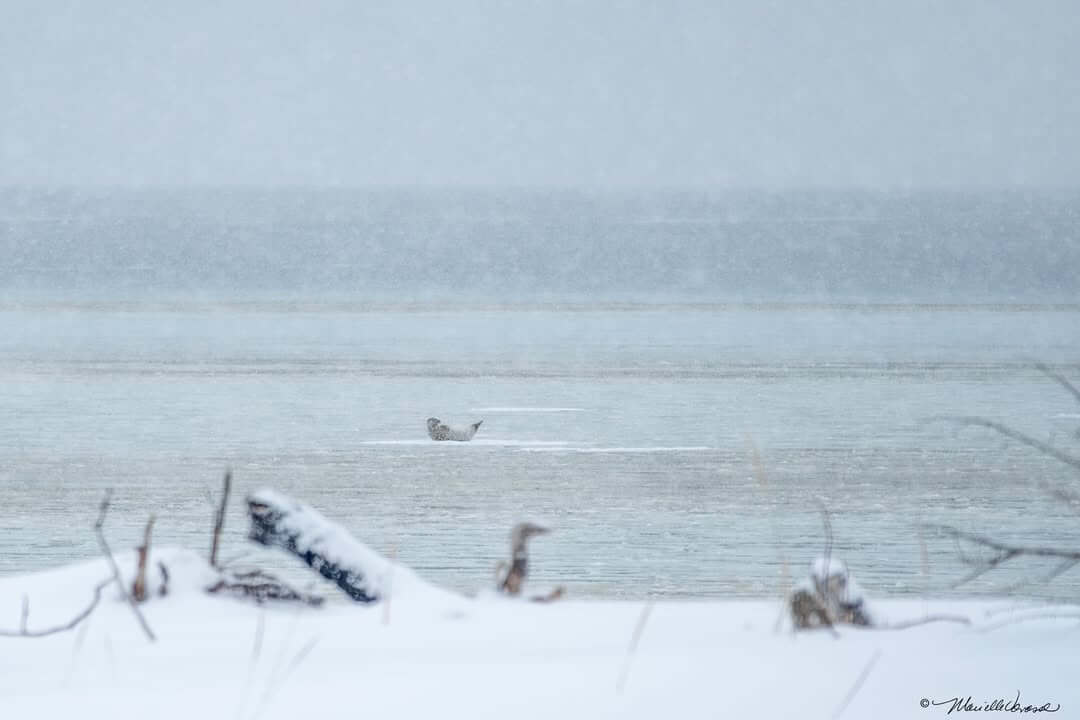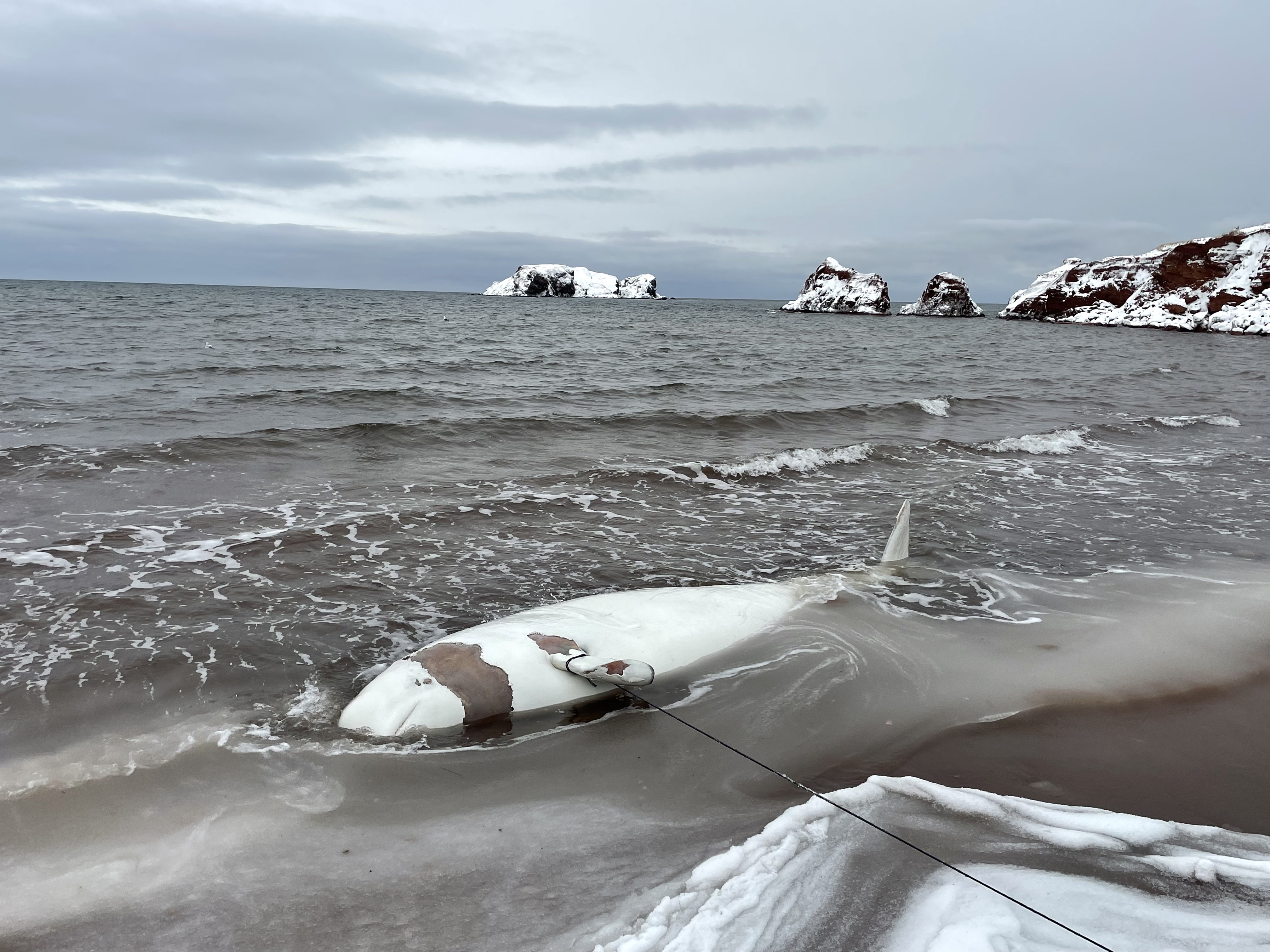Epimeletic behaviour
This type of behaviour, called epimeletic behaviour, is associated with a strong attachment to a deceased member of its own species. Epimeletic behaviours refer to any altruistic behaviour that involves a healthy individual caring for a dead or vulnerable animal. It could be related to mourning or the refusal to accept the loss of a fellow pod member.
Take the example of a beluga sighted off Cacouna in the St. Lawrence Estuary in 2018 (in French). This beluga, suspected to be a female, kept the body of a calf near her, swimming beneath it to lift it to the surface and then pulling it down.
Although these behaviours have been documented in many species of marine mammals, scientists still have few clues to understand the connection between grieving whales and death.





